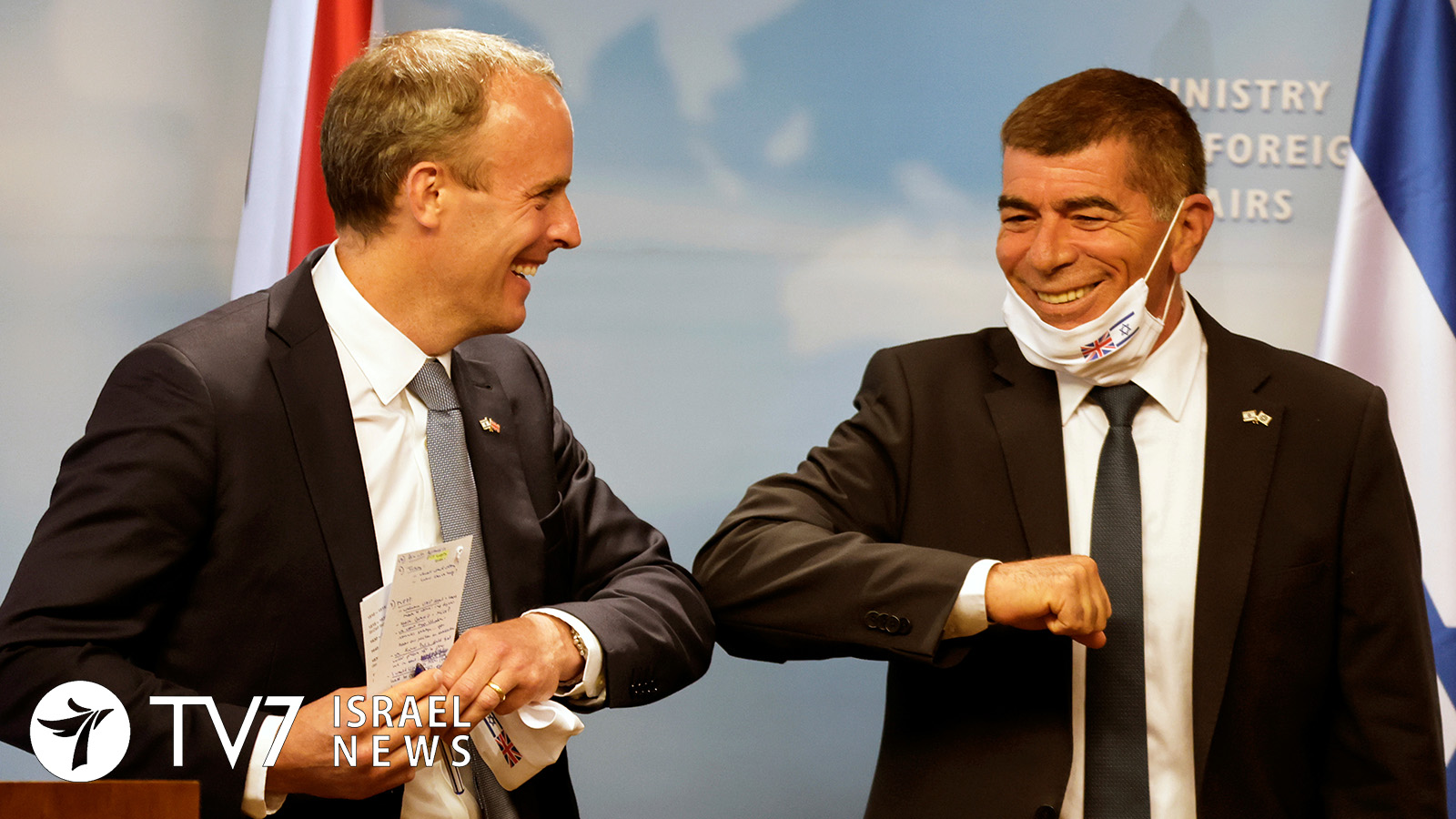Israeli Foreign Minister Gabi Ashkenazi welcomed his counterpart from the United Kingdom, Secretary of State for Foreign Affairs Dominic Raab to Jerusalem, where they demonstrated the unbreakable bond between their two nations.
During a joint statement to the press, the two top diplomats also highlighted increasing bilateral cooperation in numerous fields.
Minister Ashkenazi also seized the opportunity to voice Israel’s disappointment over Europe’s refusal to support the United States’ effort to advance a United Nations Security Council Resolution that would have extended an arms embargo on the Islamic Republic of Iran. “The E3 must understand the genuine opposition to Iran aggression and concern for the security of the region cannot be only heard in statements but must be seen in action,” he said, adding that, “It is not too late to change and correct it. The way to do so is to support the American position on this and I hope that that will happen.”
The Israeli Foreign Minister went on to assert that “Iran has repeatedly used terrorist activities and armed regional militias and terrorist groups – from Hezbollah in Lebanon, the Houthis in Yemen, to Palestinian terrorists in Gaza,” and thus “undermining the stability in the Middle East.”
“Last week as the rest of the world welcomed the news of the historic agreement between the United Arab Emirates and Israel,” pointed out Ashkenazi, “Iran’s response was to threaten the UAE with an attack. For Iran: peace and stability is bad news.”
Secretary Raab responded to his Israeli counterpart by underlining London’s foreign policy aim to resolve the Iranian dispute through “compromise.”
“We share many of the concerns around the threat from Iran and we want to deal with all of the issues, nuclear program, destabilizing activities, support for proxies and the threat it poses to the State of Israel; and it was, in my view, regrettable that a resolution on the arms embargo – which we absolutely wanted to see continued – was voted on which could only muster the support of two members of the council,” said Raab. “I think it’s important and we have offered, the United Kingdom, to find the compromises that can secure an arms embargo extension that would be viable and would be voted for and that’s the spirit in which we approach all negotiations. We want to get things done rather than simply make political points and for that you do need to forge consensus and forge compromise,” he said.
The British Foreign Secretary also emphasized London’s welcome reception of the Israeli-Emirati agreement, calling it “a very positive step,” but adding that “with it of course which is very important, the suspension of annexation. We think this is a first step and we want to help you and work with you and with all of our partners in the region and elsewhere to make sure that this is a first step to lasting peace which can only ultimately be achieved through a two state solution and negotiations of both sides.”
